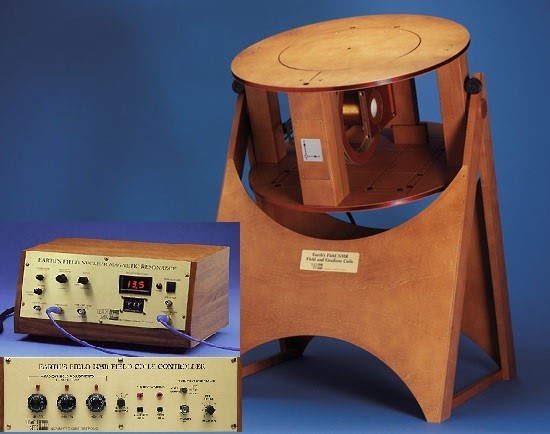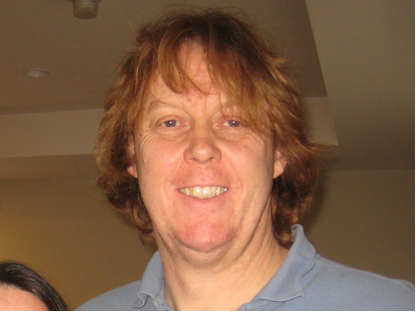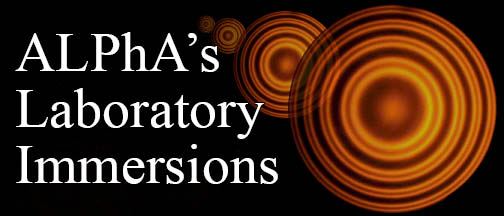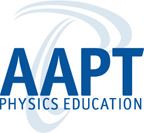- Home
- What We Do
- Laboratory Immersions
- Immersions 2019
- Imm2019KWU_EFNMR
Earth's-Field NMR
Kansas Wesleyan University, 3-5 June 2019
(One set-up)
Nuclear magnetic resonance (NMR) is a fundamental nuclear phenomenon and is a powerful research tool. Research-grade NMR instruments require a very strong and extremely uniform magnetic field for polarization of nuclear spins and the detection of the magnetization of spins in the samples. In contrast, Earth's-Field NMR (EF-NMR) utilizes the globally-available ambient magnetic field for the detection of the magnetization. Although an EF-NMR setup has low sensitivity compared to a regular high-field NMR system, this low-field system offers a minimally complex tool for teaching NMR at lower cost.
This workshop will focus on the understanding of a TeachSpin EF-NMR system, and will use this setup to study the Curie's Law of magnetism, spin-lattice and spin-spin relaxation, and even one-dimensional magnetic resonance imaging (MRI) of samples. The liquid samples are first polarized by an electromagnet; then upon turning off the external magnetic field, the polarized nuclei (typically protons) perform a Larmor precession about the earth’s-field direction. In the Earth's magnetic field of magnitude of ~50 µT, the Larmor precession frequency for a 1H (ie. proton) nucleus is ~2 kHz, and can be detected using pick-up coils (and heard in live audio!).

Participants need bring only a notebook or laptop.
The cost of the Earth's Field NMR apparatus, including the sample coil, controller, and gradient/field coil system, is $7650.00. A generic digital oscilloscope, and a laboratory power supply, are also required.

Declan Mulhall received his Ph.D. from Michigan State University where he worked in theoretical nuclear physics at the National Superconducting Cyclotron Laboratory. After 2 years as a visiting assistant professor at Cal Poly, San Luis Obispo, he joined the Physics/EE department at the University of Scranton. He has taught a wide range of courses, but became enamored of the upper-division labs. Consequently his scholarship is moving from quantum chaos in the nucleus to developing upper division labs at his home department. He has revised the physics department’s curriculum to include laboratory courses in optics, electronics for physics, and an advanced lab. He has attended many ALPhA Immersions and has implemented most of the labs in his home department. He is now on sabbatical where he is, among other things, and against his better judgement, trying to home-brew a simple cw-NMR apparatus.
Declan Mulhall, Physics/EE Department, The University of Scranton, 800 Linden St., Scranton PA 18510-4642.
Email Address: Declan.mulhall@scranton.edu Phone: 570-941-6296
Please note that the Jonathan F. Reichert Foundation has established a grant program to help purchase apparatus used in Laboratory Immersions. Limitations and exclusions apply, but generally speaking the foundation may support up to 40% of the cost of the required equipment.





